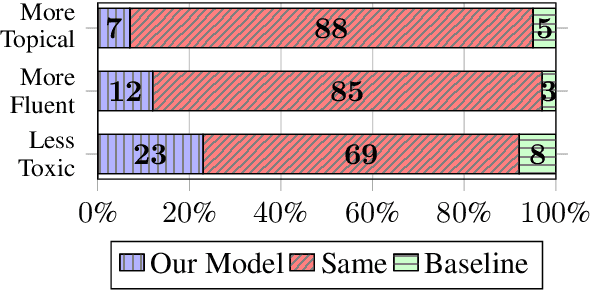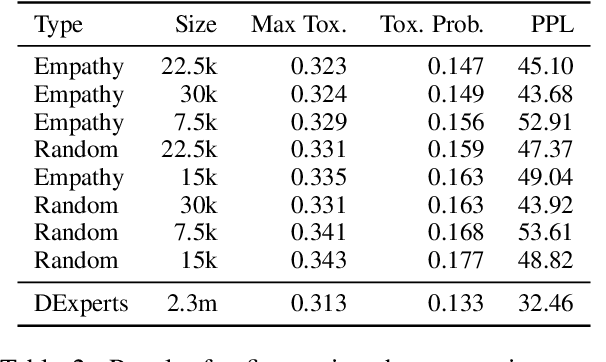Mitigating Toxic Degeneration with Empathetic Data: Exploring the Relationship Between Toxicity and Empathy
Paper and Code
May 15, 2022



Large pre-trained neural language models have supported the effectiveness of many NLP tasks, yet are still prone to generating toxic language hindering the safety of their use. Using empathetic data, we improve over recent work on controllable text generation that aims to reduce the toxicity of generated text. We find we are able to dramatically reduce the size of fine-tuning data to 7.5-30k samples while at the same time making significant improvements over state-of-the-art toxicity mitigation of up to 3.4% absolute reduction (26% relative) from the original work on 2.3m samples, by strategically sampling data based on empathy scores. We observe that the degree of improvement is subject to specific communication components of empathy. In particular, the cognitive components of empathy significantly beat the original dataset in almost all experiments, while emotional empathy was tied to less improvement and even underperforming random samples of the original data. This is a particularly implicative insight for NLP work concerning empathy as until recently the research and resources built for it have exclusively considered empathy as an emotional concept.
 Add to Chrome
Add to Chrome Add to Firefox
Add to Firefox Add to Edge
Add to Edge